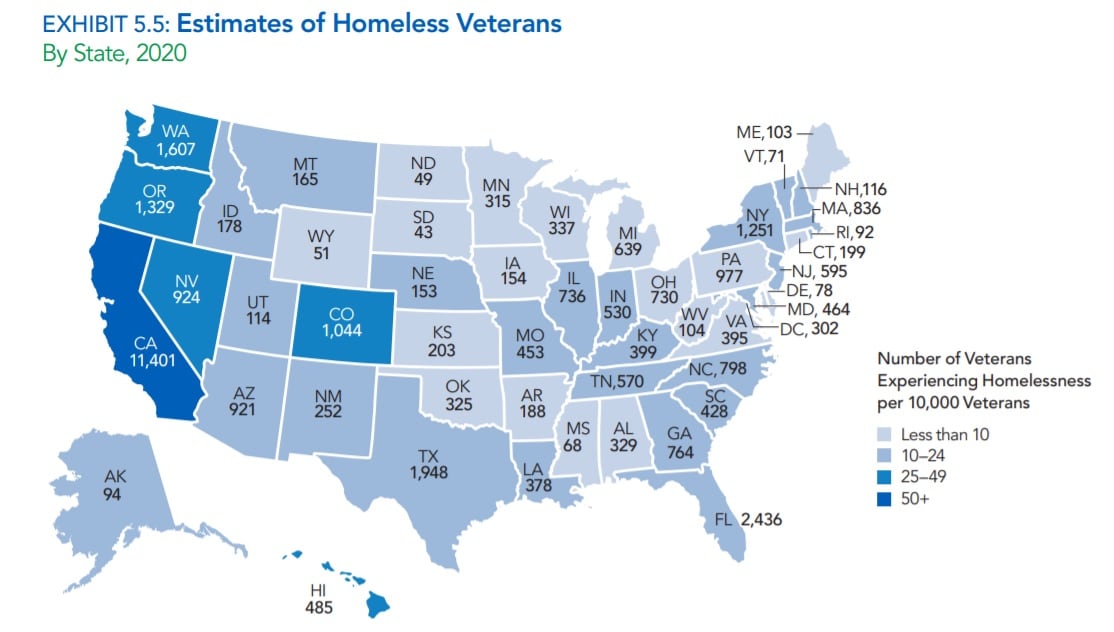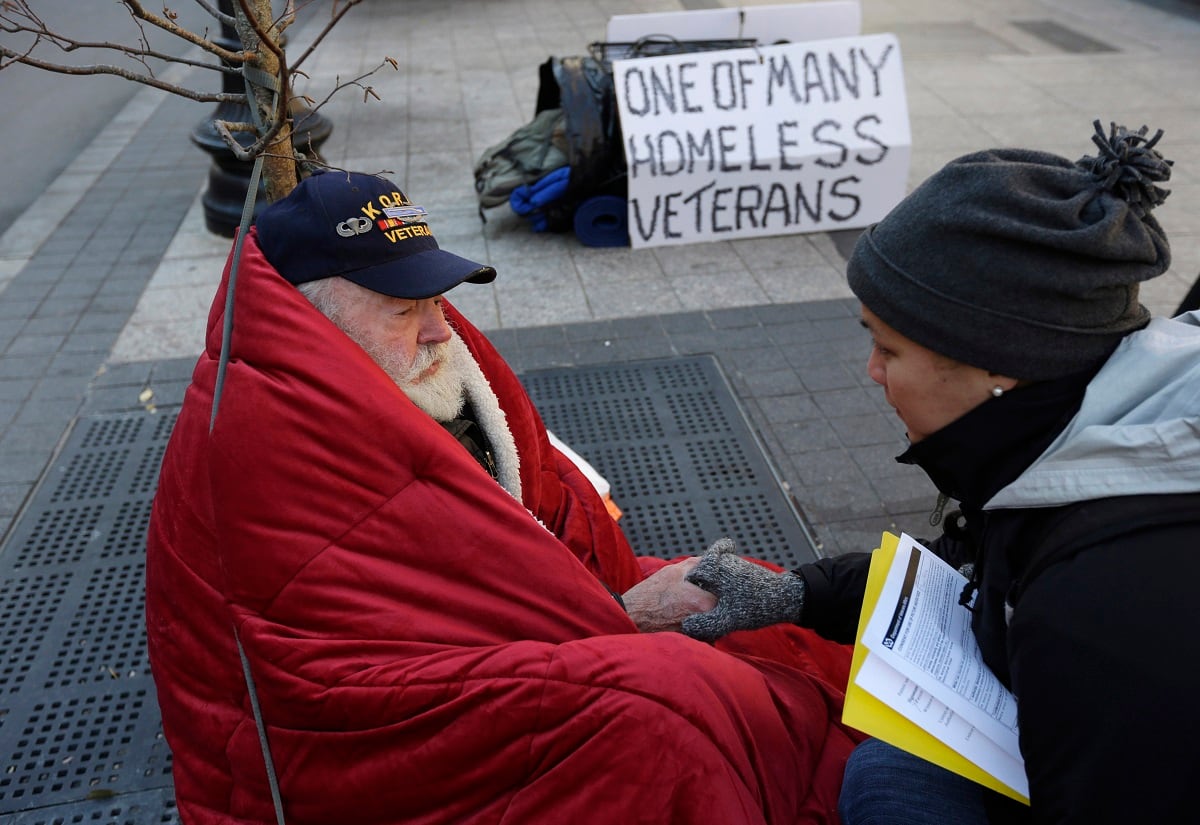Finding stable housing for veterans experiencing homelessness not only provides dramatic improvements for their lives but also potential large cost savings for Veterans Affairs medical programs, according to new research published this week from department researchers.
Officials monitoring one California VA outreach program found that the number of emergency room visits and total costs of that care both dropped by more than half for veterans experiencing homelessness six months after they found shelter through department assistance programs.
“There are key practices, when implemented, that can stop the cycling of this population between homeless shelters and hospitals,” researchers wrote in the April edition of Medical Care, a scholarly journal published by the American Public Health Association.
RELATED

The potential savings are significant. In the study of the VA Palo Alto Health Care System’s partnership with local emergency housing providers, medical care costs for veterans experiencing homelessness dropped from about $127,000 before housing to less than $60,000 afterwards.
The study focused on a group of only 20 elderly veterans experiencing homelessness — a group may have more chronic and expensive health issues than the general veteran population — and researchers acknowledged the findings are limited.
But those findings were released alongside another study which found intervention on any single factor stress factor facing veterans can help prevent individuals from experiencing homelessness. Researchers argued that advocates should deal with financial and mental health issues simultaneously to intervene quicker and more efficiently.
“Mental illness may impact a client’s spending habits and, conversely, the client’s money mismanagement might lead to stress and thereby increase symptoms of severe mental illness,” the study stated.
Researchers said waiting to address those money issues until after all mental health issues are solved delays could critical aid for endangered individuals. “Homelessness is a multifactorial problem … greater financial strain accompanying severe mental illness could contribute to risk of homelessness.”
RELATED

Together, the two studies argue for aggressive intervention to help veterans at-risk for homelessness. The findings come less than a month after Department of Housing and Urban Development officials reported a small rise in the number of homeless veterans in 2020, a statistic that drew concerns from many veterans advocates after a decade of steady declines in that figure.
The most recent HUD figures estimate about 37,200 veterans were without stable housing at the start of 2020. Estimates for 2021 — which will include the impact of the ongoing coronavirus pandemic on the issue — are expected sometime this fall.
About 21 of every 10,000 veterans in the United States today are without homes, according to the HUD findings. Veterans make up about 6 percent of the population of the United States but 8 percent of the country’s population of those experiencing homelessness.
The study results are available on the journal’s web site.
Leo covers Congress, Veterans Affairs and the White House for Military Times. He has covered Washington, D.C. since 2004, focusing on military personnel and veterans policies. His work has earned numerous honors, including a 2009 Polk award, a 2010 National Headliner Award, the IAVA Leadership in Journalism award and the VFW News Media award.





